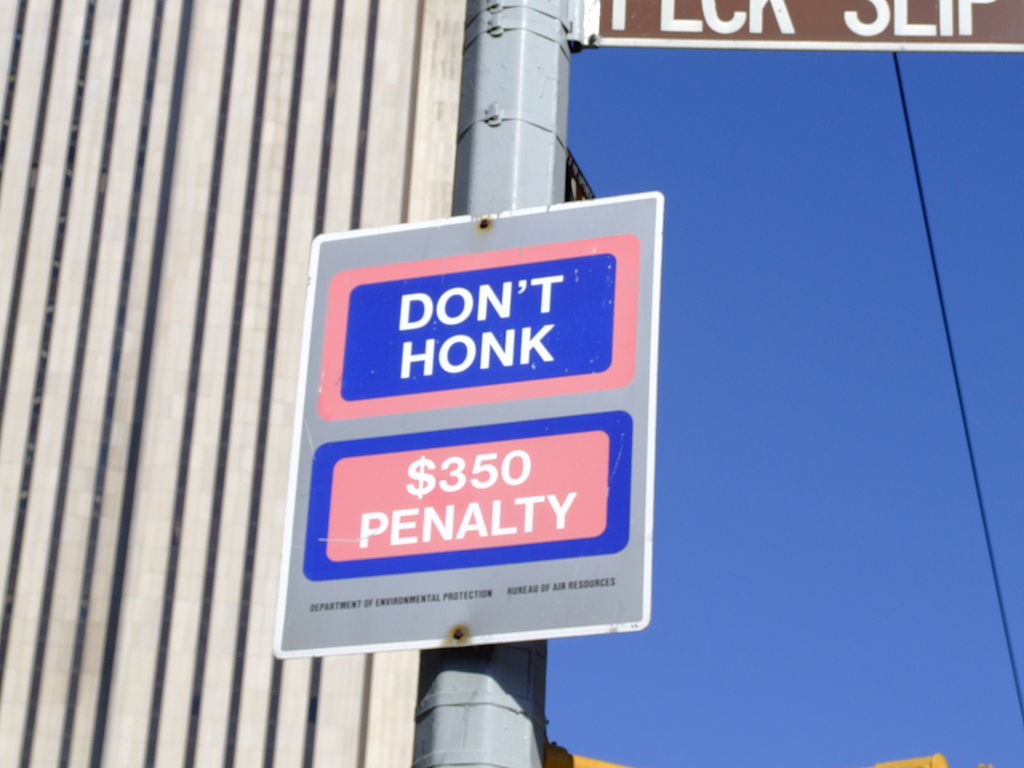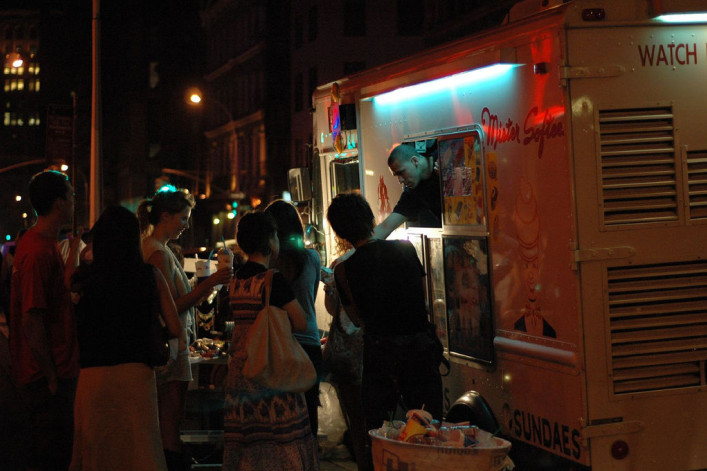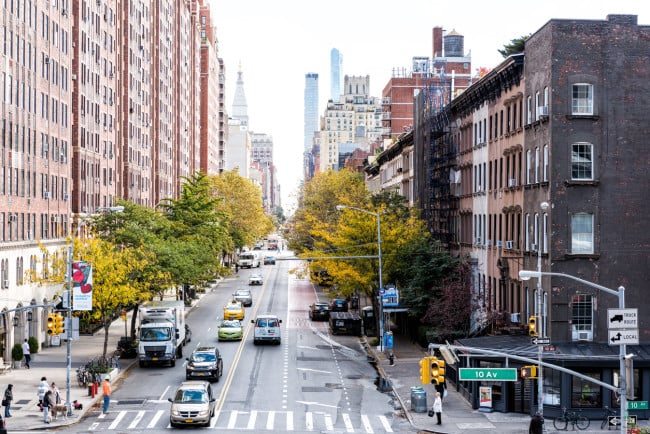How to deal with the city's most annoying noises
When horns are blaring, sirens are wailing, and bass is rattling all around you, you might ask yourself just why you’re living in New York City. Or, you might ask what you can do about it.
On this second point, you wouldn't be alone. Of 2.375 million 311 complaints made in New York last year, 421,400 were about noise.
In the city, noise is regulated by the 25-page Noise Code, which lays out in minute detail what sounds can be made when, where, and at what levels. For example, did you know that ice-cream trucks are not supposed to play their jingles when they're stopped, and violations are punishable by fines of $350-$3,000?
Many noise complaints are directed to the DEP. And, a spokesperson for the agency said, "Many, many more reports go directly to NYPD. The complaints that DEP receives generally relate to noise caused by equipment. The biggest difference is that NYPD receives complaints related to noise issues between neighbors[...] and music-related complaints from commercial establishments."
Last year, the number of excessive noise complaints funneled to DEP via 311 was 58,476. Construction before or after hours was the most common environmental complaint at 28,400 calls in 2016, and noise from construction equipment ranked next at 7,600. Barking dogs came up 6,700 times, and loud HVAC equipment netted 4,300 complaints. Car alarms ranked next, at 3,700 complaints.
In 2016, the NYPD received 216,954 noise-complaint calls via 311, according to data provided by the department. The department did not provide information on direct calls to precincts.
The noise code was revised in 2005 by Mayor Michael Bloomberg, for the first time in 30 years, and updated again in 2007. The new versions clarified the “allowable decibel level for a variety of activities.” The actual code requires a bit of math to make sense of, but DEP's shortened guide gives a general sense of what's covered.
Here are five key things to know about the code, and what it means for you when the sound near you is too much to take:
If it sings, hums, barks, or honks, it could be a nuisance
The code covers noise from construction, animals, food-vending vehicles, air conditioner and ventilation equipment, music from bars and restaurants, garbage trucks, and other motor vehicles. Because the city does not own or operate the airports and the transit system, they are not covered (sorry, people living in flight paths). The city did, however, release a report in 2010 recommending strategies for the Port Authority to reduce sound levels around airports, including measures such as home insulation programs, "encouraging use of quieter aircraft technology," and enforcing airplane curfews.
Neighbors are the main culprits, naturally
The majority of noise complaints are about neighbors “both footfall and airborne” said Bonnie Schnitta, founder of SoundSense, an acoustic consulting and engineering company. The DEP doesn't get involved in neighbor complaints—many of those are funneled to the NYPD—but it does have a guide on how to cut down on residential noise (six pages; updated in 2016). For example, you can buy recommended materials as simple as heavier curtains or carpet, or go higher-tech with acoustic panels and bass traps, which absorb low-frequency noise, and try to soundproof your apartment yourself. Or you can call an acoustics troubleshooter, which will send someone to identify sonic weak points in your home, recommend sound-reducing material solutions, and do the installation.
Before going to the cops or shelling out thousands on home renovations, you'd do well to try the interpersonal route, either by talking to the offending neighbor directly, or by getting your building's board or landlord involved. For more on how to make peace with your neighbors without escalating hostilities, see our guide here.

Honk if you're angry
The code says the “use of vehicle horns is illegal except as a warning in situations of imminent danger.” The fine for such a toot is theoretically $350, but in practice, the law is rarely enforced, meaning if you're moving close to the Lincoln Tunnel, for example, the din is there to stay no matter what you do.
At one time residents could request an evaluation to see if their area is eligible for a “Don’t Honk” street sign, but in 2013 the city began removing the signs, ending a 30-year campaign to discourage honking. Needless to say, drivers continue to lay on their horns in New York, and enforcement of the rule against doing so is far from a sure thing. The NYPD did not respond to a question about how many unnecessary horn use tickets officers wrote in 2016.
We don’t all scream for ice cream
Is there anyone in New York City who can’t hum the Mister Softee jingle? The ice cream truck is a synonymous with summer in the city. Not everyone wants to hear it outside their window at all hours, though.
As noted above, ice-cream trucks are officially barred from playing their jingles when they're stopped, and violations are punishable by fines. However, as a Harlem transplant named Mackenzie found out recently, enforcement is not an NYPD priority, and DEP inspectors tend to arrive days after a complaint. This means odds aren't high that anyone will catch the offending ice cream vendor in the act.
The most direct route, asking a driver directly to stop, isn't a sure thing either, so depending where you are, maddening evening melodies may be an immutable feature of the warmer months.
One man’s trash is another’s torture
Garbage collection trucks are technically prohibited from operating within 50 feet of a residential building between 11 p.m. and 7 a.m. if the sound they make, including compacting, exceeds 80 decibels at a distance of 35 feet or more from the vehicle. Because garbage trucks are transitory by nature and noise enforcement tends not to be instantaneous, without persistent complaints and the chance arrival of an inspector at exactly the right time, being able to do something about it isn't exactly guaranteed.
The bottom line: A lot of types of sounds are regulated in New York City, but enforcement varies widely. As a general rule of thumb, if the source of the noise is stationary and covered under the code, you have a better chance of addressing it through 311 complaints. For other kinds of noise, though, your best bet may be soundproofing, or in extreme situations where the racket is ruining your life and shows no signs of slowing down, moving to a quieter locale.
You Might Also Like


























